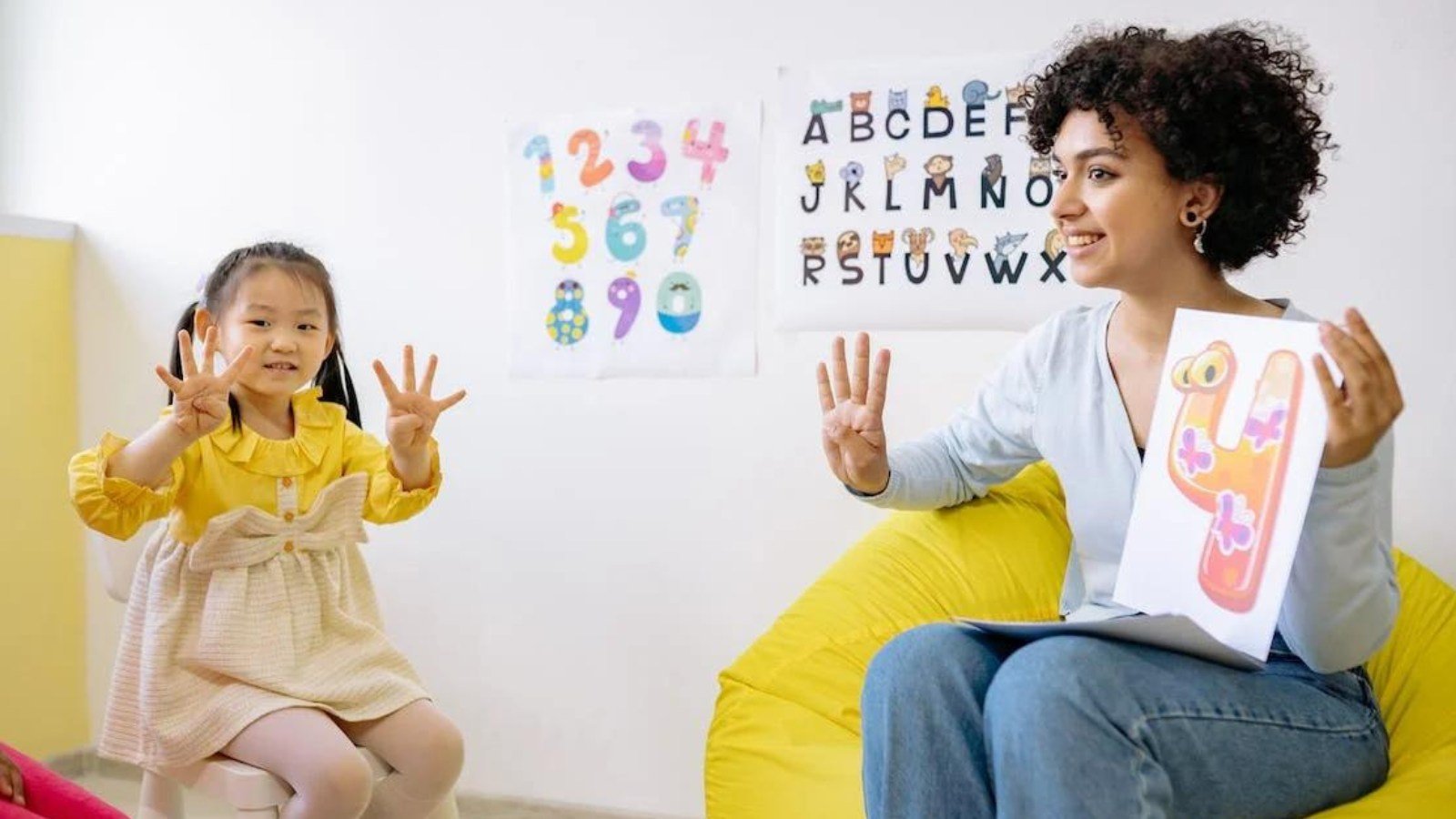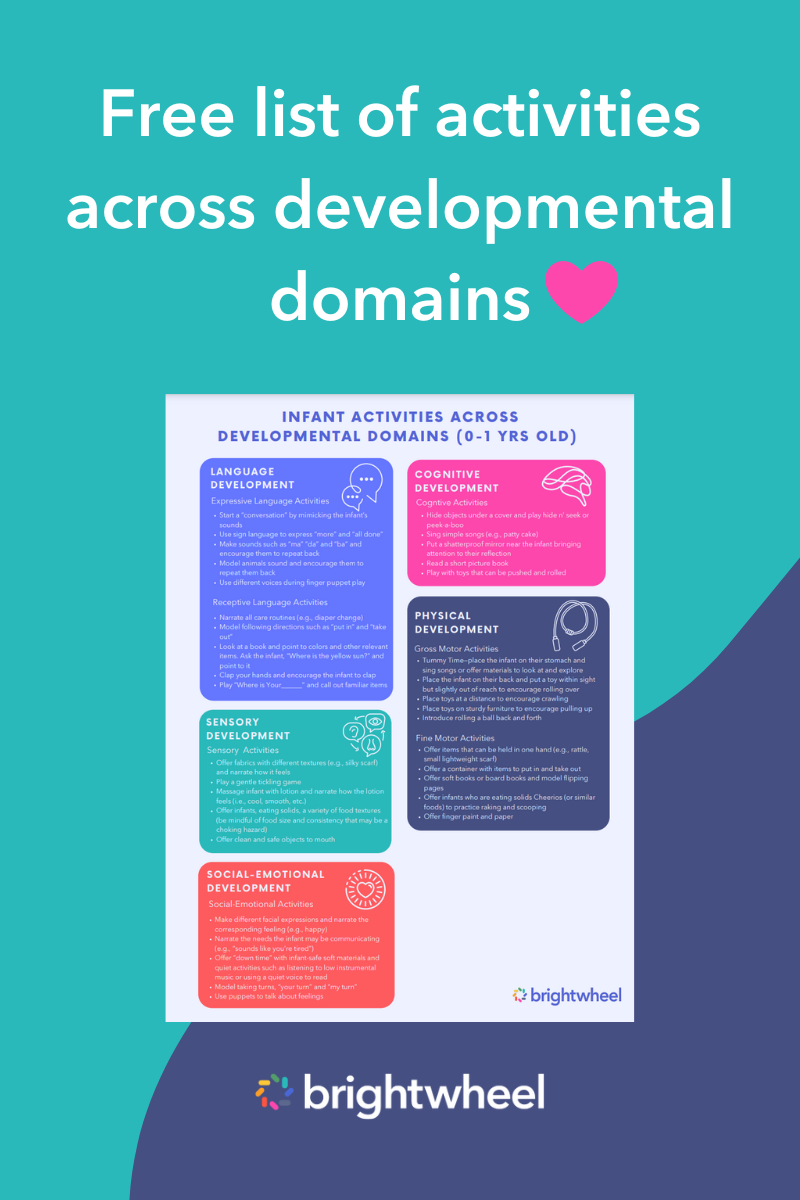
Transitioning from preschool to kindergarten is a big milestone in a child's life. It marks the beginning of their formal education journey and lays the foundation for their future academic success. Families and educators play an important role in preparing children for this transition.
School readiness focuses on various strategies that contribute to a child's well-being. As an educator, you can help increase school readiness in your community and prepare the children in your program for kindergarten by providing a solid foundation for the skills they'll need to succeed.
School readiness goals and objectives
School readiness refers to a child's level of preparedness when entering kindergarten or formal schooling. It involves many developmental skills essential for children to thrive in an educational environment. These skills span various domains, including:
- Approaches to learning
- Social and emotional development
- Language and literacy
- Cognition
- Perceptual, motor, and physical development
Each domain represents different aspects of a child's overall development and is crucial to their growth and readiness for school. For example, the physical domain includes the development of gross and fine motor skills that impact a child's ability to do actions like run or hold a pencil. These domains are interconnected, and growth in one field often influences and supports development in others.
Early childhood education programs prepare children for kindergarten by helping them develop a foundation for their language, problem-solving, self-help, physical, and social-emotional skills. Through age-appropriate activities, play-based learning, and socialization opportunities, children can develop the essential skills that will prepare them for their first year of school.
With brightwheel's progress report feature, you can log observations, track progress, and share learning milestones with families. Educators can create individualized progress reports for each child with photos and videos and use them to evaluate curriculum effectiveness.
The collaboration between families and early education programs is also vital for promoting school readiness. Families play a critical role as children's first teachers and nurturers. By establishing a supportive home environment that values learning, families can foster a love for learning and actively engage in their child's development.
While it is important to note that all children progress differently and reach developmental milestones at different times, the below goals are meant to serve as broad statements of expectations for children’s learning and development.
Language and pre-literacy goals
Language and pre-literacy skills are crucial for children as they prepare to enter kindergarten. These goals focus on building a solid foundation in communication, vocabulary, and early reading skills. By the time they start school, children should be able to name letters, write their first name, recognize their written name, and more. These goals lay the groundwork for language development and pave the way for future literacy achievements.
Children’s language goals for kindergarten include:
- Saying the sounds of letters
- Speaking in complete sentences that others can understand
- Understanding and following directions with at least two steps
- Making comparisons
- Describing relationships between objects
- Making simple predictions about stories
- Repeating familiar songs, poems, or nursery rhymes
Problem-solving and reasoning goals
Problem-solving and reasoning skills are vital to a child's cognitive development. Before entering kindergarten, children should be able to demonstrate specific problem-solving abilities, such as matching two similar pictures in a set of five pictures and playing memory games. Achieving these goals enables children to think critically, analyze situations, and make logical connections, fostering their ability to tackle academic challenges in school.
Problem-solving and reasoning goals include:
- Classifying objects by physical features
- Grouping objects that go together
- Understanding position, directions, size, and comparison
- Completing simple puzzles with up to four pieces
- Identifying colors
- Understanding cause-and-effect
- Drawing pictures to help express ideas
Social-emotional goals
Developing strong social-emotional skills is essential for children's social integration, emotional well-being, and success in school. Before starting kindergarten, children should strive to meet specific social-emotional goals like taking turns and sharing with others. Children can develop empathy, effective communication skills, self-regulation, and a sense of belonging by achieving these goals, contributing to positive social interactions and a conducive learning environment.
Social-emotional goals before entering kindergarten include:
- Forming healthy relationships with peers
- Socializing with more than one peer
- Being assertive when necessary
- Following someone’s lead
- Handling conflict appropriately
- Respecting others’ property
- Working cooperatively in a group
- Showing respect
- Listening when someone is speaking
Self-help goals
Children should achieve specific self-help goals that promote independence and personal responsibility before they begin kindergarten. Mastery of self-help skills, such as getting dressed and undressed independently, empowers children to take care of their needs, fosters self-confidence, and allows them to actively participate in classroom activities without constant assistance.
Self-help goals include:
- Using utensils
- Brushing their teeth
- Using the toilet
- Washing their hands
Motor and coordination goals
To actively participate in school activities, children need to develop physical and body control skills such as walking in a straight line and skipping. These skills contribute to motor and coordination goals and enhance fine and gross motor skills, spatial awareness, and overall physical coordination. This allows children to engage in various classroom tasks and experiences.
Motor and coordination goals include:
- Running, climbing, and moving with agility
- Throwing and catching a ball
- Hopping on one leg
- Jumping with legs together
- Standing on one leg for five seconds while maintaining their balance
- Holding a pencil or crayon correctly
- Cutting along a line with a pair of scissors
- Using glue, tearing paper, placing pegs on a board
- Determining their dominant hand
- Moving rhythmically to music
- Sitting at a desk with good posture and without slouching
- Sitting on a floor with their legs crossed without falling over
Kindergarten readiness assessment
A kindergarten readiness assessment is a developmentally appropriate tool that measures children's school readiness, identifies gaps in their skills, and evaluates how prepared they are to begin learning their state’s academic standards.
Kindergarten readiness assessments aren’t required in every state. The Education Commission of the States provides a detailed breakdown of each state's kindergarten policies and whether the state requires incoming kindergarteners to complete a readiness assessment.
Strategies to promote kindergarten readiness
To prepare children for success in school, early childhood educators need to use intentional strategies and practices that promote kindergarten readiness. Five actionable methods that educators can implement in their programs include:
- Offering professional development and coaching to staff across various program options and settings to enhance early learning practices.
- Developing personalized wellness plans for each child to foster their growth and development.
- Establishing a collaborative partnership process with families that supports their understanding of their child's progress and encourages active involvement in learning and leadership.
- Maintaining regular and effective communication with local schools and other programs to promote the exchange of information and aligning services for early learning, health, and family engagement.
- Cultivating a cohesive learning community among staff to foster innovation, continuous improvement, and integrated services spanning education, family services, and health.
Supporting school readiness in your community
A study by First 5 Alameda County found that children's kindergarten readiness can be impacted by socioeconomic factors, such as their household income, race, environment, health and development, and the readiness of schools in their community. The study recommends policy changes and investments that communities can make to support school readiness in children negatively impacted by socioeconomic factors.
These recommendations include:- Implementing policies that support families’ basic needs.
- Establishing early identification and intervention systems for children at risk for special needs and children experiencing trauma.
- Promoting policies that build livable communities with parks and libraries, affordable housing, and safe, reliable transportation.
- Investing in professional development for teachers, including equity and implicit bias training.
- Recruiting a diverse, culturally and linguistically competent teacher workforce.
Supporting school readiness in your community through policy changes and advocacy helps to increase equity and makes sure every child in your childcare program and community has equal opportunities to excel in kindergarten and beyond.
Bottom line
School readiness lays the foundation children need to meet kindergarten's social, physical, and academic expectations. Help the children in your childcare program prepare for kindergarten by teaching them the skills they’ll need, advocating for support in your community, and prioritizing your state’s academic standards.


